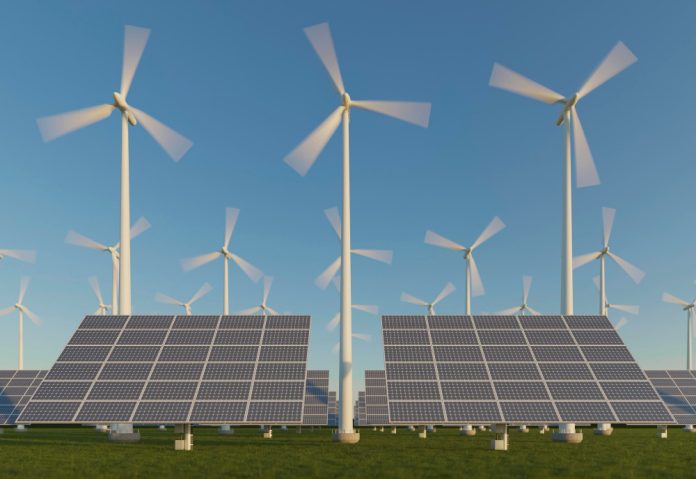As the African sun beats down on vast solar farms in Morocco and wind turbines spin along the coast of Kenya, it is clear that renewable energy is no longer just a promise for the future – it is a powerful force in Africa’s fight against climate change today. Across our diverse continent, from the Sahara to the savannas, renewable energy is emerging as a key player in our efforts to mitigate climate change while driving sustainable development.
Africa, despite its minimal contribution to global greenhouse gas emissions, stands to suffer disproportionately from the impacts of climate change. Yet, in this challenge lies an opportunity. Our continent is blessed with abundant renewable resources – sunlight, wind, geothermal heat, and hydropower potential. Harnessing these resources is not just about reducing emissions; it is about powering a new era of African prosperity.
In North Africa, the desert sun is being transformed into a valuable resource. Morocco’s Noor Ouarzazate Solar Complex, one of the world’s largest concentrated solar power plants, is a testament to the potential of solar energy in Africa. This massive project not only provides clean electricity to thousands of homes but also serves as a model for how large-scale renewable projects can create jobs and stimulate local economies.
Read also: War and climate change as a catalyst for adoption of energy efficiency and renewable energy
Wind power is making significant strides across the continent. In countries like South Africa, Kenya, and Egypt, wind farms are springing up, taking advantage of our extensive coastlines and vast open spaces. The Lake Turkana Wind Power project in Kenya, Africa’s largest wind farm, is a shining example of how renewable energy can be deployed at scale, even in remote areas.
Geothermal energy, tapping into the Earth’s heat, is another area where Africa is leading the way. The countries along the Great Rift Valley, particularly Kenya and Ethiopia, are harnessing this stable, constant source of power. Geothermal energy provides a reliable baseload power that complements the intermittent nature of solar and wind, creating a more robust and resilient energy mix.
Hydropower, long a staple of Africa’s energy landscape, is being reimagined with a focus on sustainability and community impact. Small-scale, run-of-river hydroelectric projects are providing power to rural communities without the environmental and social disruptions often associated with large dams.
But the role of renewable energy in mitigating climate change goes beyond just replacing fossil fuels in our power grids. It is catalyzing a broader transformation of our economies and societies. In rural areas across the continent, off-grid solar solutions are bringing electricity to communities for the first time, powering education, healthcare, and small businesses. This not only improves quality of life but also reduces reliance on kerosene and other polluting fuels for lighting and cooking.
In our cities, renewable energy is enabling new approaches to urban planning and development. From solar-powered street lights in Lagos to green buildings in Cape Town, renewable technologies are helping to create more sustainable, livable urban environments.
The transport sector, a significant source of emissions, is also being revolutionized by renewable energy. Electric vehicles, powered by clean electricity, are starting to appear on African roads. In countries like Rwanda and Uganda, electric motorcycle taxis are providing a glimpse of a low-carbon future for urban mobility.
Moreover, the growth of the renewable energy sector is creating new job opportunities across Africa. From solar panel installers in rural Senegal to wind turbine technicians in South Africa, green jobs are providing a pathway to sustainable livelihoods for many Africans.
However, it is important to acknowledge the challenges that remain. The intermittent nature of some renewable sources requires investment in energy storage solutions and grid modernization. Access to financing for renewable projects, particularly in less developed African countries, remains a hurdle. And there is a pressing need for skills development to ensure that Africans can fully participate in and benefit from the renewable energy revolution.
Despite these challenges, the momentum behind renewable energy in Africa is undeniable. It is driven not just by climate concerns, but by the recognition that renewable energy offers a path to energy security, economic development, and improved quality of life for millions of Africans.
The role of renewable energy in mitigating climate change in Africa will only grow. With continued investment, supportive policies, and regional cooperation, Africa has the potential to become a global leader in clean energy. By harnessing our abundant renewable resources, we can not only reduce our carbon footprint but also light the way to a brighter, more sustainable future for our continent and the world.
The renewable energy revolution in Africa is more than just a climate change mitigation strategy – it is a testament to African innovation, resilience, and our commitment to sustainable development. As the world grapples with the challenge of climate change, Africa’s renewable energy journey offers hope and inspiration for a cleaner, greener future.





